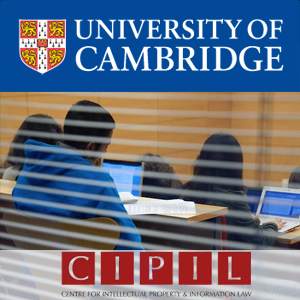full
'ISDS and Intellectual Property in 2020 - Protecting Public Health in the Age of Pandemics': CIPIL Evening Webinar (audio)
Speaker:
Professor Rochelle Dreyfuss, NYW Law School Biography: Rochelle Cooper Dreyfuss is Pauline Newman Professor of Law at NYU Law School and a Co-Director of the Engelberg Center on Innovation Law & Policy. She is a leading scholar of intellectual property law as well as other science and technology topics. She was a research chemist prior to law school, and later clerked for Chief Justice Warren Burger of the US Supreme Court. Among her works on international intellectual property issues are A Neofederalist Vision of TRIPS: Building a Resilient International Intellectual Property System(2012, with Graeme Dinwoodie), and several co-edited books, including Framing Intellectual Property Law in the 21st century: Integrating Incentives, Trade, Development, Culture, and Human Rights (2018, with Elizabeth Siew Kuan Ng); and the IILJ Project volume Balancing Wealth and Health: The Battle Over Intellectual Property and Access to Medicines in Latin America (2014, with César Rodríguez-Garavito). She was the Arthur Goodhart Visiting Professor in Legal Science at Cambridge University for 2019–20.
Abstract:
Many countries have responded (or have considered responding) to the COVID pandemic by modifying their intellectual property laws to ensure the availability of vaccines, medicines, diagnostics, and related information. Some have asked the World Trade Organization (WTO) for a waiver to excuse any steps they might take that are inconsistent with obligations under the TRIPS Agreement. Although a waiver would protect WTO members from challenges in the WTO’s Dispute Settlement Body, a state that is a party to an international investment agreement (IIA) that includes investor-state dispute resolution has something else to worry about. Investors could claim that its actions amount to an indirect expropriation or a denial fair and equitable treatment in violation of the obligations in the IIA. In this piece, I conduct a thought experiment on how such suits might unfold. The first part describes how states sought or may seek to exercise control over the knowledge and products needed to protect public health during the global pandemic. The second part considers the challenges that investors might lodge and how they might be resolved. I identify the places where safeguards in IIAs that are intended to protect sovereign authority over healthcare may fall short.
For more information see: https://www.cipil.law.cam.ac.uk/seminars-and-events/cipil-seminars
This entry provides an audio source for iTunes.

